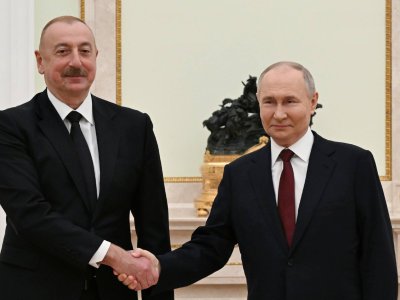Turkmen gas will also pass through the Zangezur corridor

The Zangezur corridor, which will connect Central Asia, the Caspian basin, Azerbaijan, and Armenia to Turkey, is considered a strategic project in terms of both regional trade and energy security.
According to information from Modern.az, an article published by the "Anadolu" agency states that the corridor, as a key part of the Middle Corridor, will accelerate Turkey's transformation into an energy and logistics hub in Eurasia.
In August, practical steps for the corridor were taken with the groundbreaking ceremony of the Kars–Iğdır–Aralık–Dilucu railway line. Turkey's Minister of Transport and Infrastructure, Abdulkadir Uraloğlu, stated that the project holds strategic importance not only for Turkey but for the future of the entire South Caucasus and Eurasia.
According to ODTÜ Professor Oktay Tanrısever, the Zangezur corridor is the shortest route for delivering Caspian energy resources to Turkish and European markets. In his opinion, the strategic importance of the project is linked to both the reduction in the number of transit countries and its greater distance from Russia's sphere of influence:
“The corridor can be used for oil, gas, and electricity transmission in the future. However, for this, security must be ensured and political stability strengthened.”
Tanrısever added that the European Union and the USA provide political support for the corridor as they see it as an an energy route independent of Russia. However, it may take at least 3–5 years for specific energy lines to become operational.
ASBÜ Professor Levent Aydın, on the other hand, stated that major energy pipelines such as TANAP, TurkStream, and BTC have already transformed Turkey into an “energy bridge.” The Zangezur corridor could be an additional “link” to these routes:
“When the project opens, a new strategic infrastructure will be formed not only for cargo transportation but also for pipelines, electricity transmission lines, and digital communication.”
According to him, the transportation of Turkmen gas via the corridor is also possible in the near future.
He noted that the USA supports the corridor to weaken Russia's energy influence, while the EU supports it to reduce energy dependence after the Ukraine war. China, on the other hand, views the corridor as a “new front in corridor wars” and invests in the region within the framework of the “One Belt, One Road” initiative.
According to experts, the commencement of primarily cargo transportation via the corridor is expected in the coming years. The formation of energy infrastructure, however, could materialize within 5–10 years, depending on political stability and regional agreements.
Thus, the Zangezur corridor is evaluated as a strategic project that will impact the future of Turkey and the region as a whole, not only economically but also geopolitically.
-
19:44, Bu günIs Trump coming to Baku?
-
19:16, Bu günRussia's nuclear weapon ACTIVATED
-
18:58, Bu günFlights at these airports in Russia suspended
-
18:13, Bu günFighting intensifies in Sudan - Army headquarters captured
-
17:16, Bu günStarmer to Turkey will visit
-
16:55, Bu günShips collided off the coast of China - 2 people went missing
-
16:43, Bu günA good deal could be made with China - Trump
-
16:19, Bu günAn earthquake occurred in Turkey
-
15:48, Bu günThey will see a female president in the White House - Harris
-
15:19, Bu günRussia's response will be tough - Peskov
-
14:27, Bu günAzerbaijan is ready to allow this - Overchuk
-
13:05, Bu günTrump: I like to stop wars
-
12:22, Bu günThe history of a picture - The most talked-about rivals of the art world - Flora and Ilhama
-
11:50, Bu günPKK from Turkey completely WITHDREW
-
09:21, Bu günDrone attack on Kyiv - 26 injured
-
25 October 2025, 22:38In Russia among migrants MASS BRAWL
-
25 October 2025, 17:32Orban prepares for a visit - Ukraine is on the agenda
-
25 October 2025, 17:19Vahid Alakbarov lost 1 billion in 2 days
-
25 October 2025, 16:31The chief editor of “Sputnik Azerbaijan” also left Baku
-
25 October 2025, 14:27The UN's legitimacy is in doubt - Reforms are necessary!
-
25 October 2025, 13:26Pashinyan will go to Kazakhstan
-
25 October 2025, 12:29In the government of the Far East's first female leader TURKISH OFFICIAL
-
25 October 2025, 11:59“Typhoon” destroyed its target with precision - REAL-TIME FOOTAGE
-
25 October 2025, 11:54A 1-year mourning declaration in this country was made
-
25 October 2025, 11:23Do not connect these devices to an extension cord! - WARNING
-
25 October 2025, 10:54Azerbaijani oil became more expensive - NEW PRICE
-
25 October 2025, 10:40New appointment in the Kremlin: this person will establish relations with former Soviet countries
-
25 October 2025, 10:05Canada's Prime Minister's "artsax" nonsense
-
25 October 2025, 09:33Russia struck a kindergarten with a ballistic missile
-
25 October 2025, 08:39Armenia has acquired new weapons and military equipment
















































